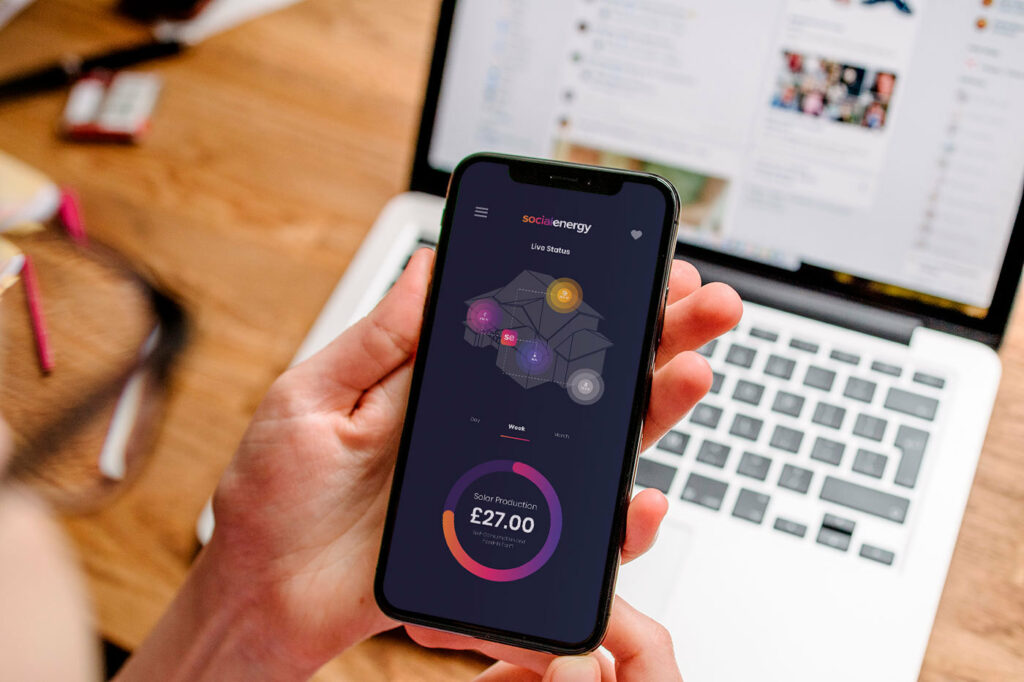Social Energy, a UK-based energy technology start-up, is intending to disrupt the energy sector with an artificial intelligence-powered platform that could slash domestic energy bills.
The company has partnered with household battery brand Duracell’s home energy storage team to produce a “groundbreaking” new tech platform that claims to be the first of its kind to meet National Grid’s FFR standards, allowing homes to essentially trade energy at times of peak demand.
Using Duracell’s domestic batteries – which have been developed in conjunction with battery manufacturer BYD – in combination with the AI-powered ‘Social Energy Hub’, the system can predict home energy usage patterns and optimising the times at which homes draw from the grid, while also enabling the set-up to “uniquely optimise between multiple grid trading opportunities”.
Social Energy values these opportunities at around £226 per year for households with solar PV which, when combined with a purported £367 of earnings from balancing services available to a standard 3kW battery, as determined in a report from energy consultancy Cornwall Insight and cited by Social Energy, generate significant savings for average households.
The firm equates the savings to a near 70% reduction in a home’s unit rate for electricity from an average 14 pence per kilowatt hour to just 4 pence.
Simon Peat, chief technology officer at Social Energy, said the firm was confident of making cleaner and greener smart cities “a reality”.
“We live in an age of disruption, where innovators are challenging established ways of doing things and we no longer accept the status quo as ‘good enough’.
“Not only we are offering consumers an unprecedented reduction in energy bills, but we are reducing the country’s reliance on traditional energy sources. Across Britain our platform delivers 100% clean energy efficiently, reliably and faster than any other form of energy available,” he said.
Social Energy is however wading into a space already populated by a large number of sizeable players.
Earlier this year Nissan confirmed the launch of its home solar-plus-storage offering, using second life batteries from Eaton, following on from E.On’s launch of a similar offer last year.
In April Engie announced that it had struck a deal with German battery firm sonnen to offer domestic storage solutions to its customers and just last week, EDF revealed that it had turned to British storage manufacturer Powervault to help power a storage-based offering to take homeowners into flexibility markets.





